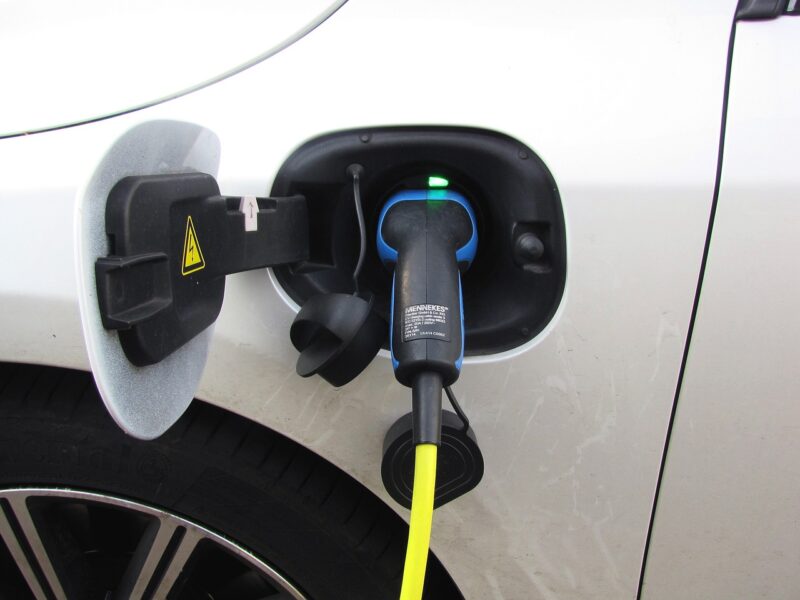The Benefits of Hybrid Cars: Fuel Savings and Eco-Friendly Transportation
November 15, 2024

In recent years, hybrid cars have gained immense popularity as environmentally friendly alternatives to traditional gas-guzzling vehicles. These cars combine a conventional internal combustion engine with an electric propulsion system, offering a unique solution to the growing concerns over fuel efficiency and environmental impact. In this article, we will explore the substantial benefits of hybrid cars, including fuel savings, reduced emissions, and long-term economic advantages, ultimately solidifying their place in the transportation landscape.
1. Understanding Hybrid Cars: A Quick Overview
Before diving into the benefits, it’s essential to have a basic understanding of hybrid cars. They operate using a dual powertrain that consists of:
- Internal Combustion Engine: A traditional gasoline engine that helps propel the car and can recharge the battery while driving.
- Electric Motor: This motor draws power from a rechargeable battery, providing additional torque and allowing power to flow silently during short trips or low-speed driving.
The harmony between these two systems leads to better fuel efficiency and lower emissions. Now, let’s delve into the many benefits of opting for a hybrid vehicle.
2. Significant Fuel Savings
One of the most compelling advantages of hybrid cars is their ability to save on fuel costs. They typically achieve higher miles per gallon (MPG) ratings compared to traditional vehicles. The key factors that contribute to these fuel savings include:
- Regenerative Braking: Hybrid vehicles utilize regenerative braking, which captures energy typically lost during braking and uses it to recharge the battery. This system enhances overall efficiency, especially in stop-and-go traffic conditions.
- Electric Motor Assistance: The electric motor provides additional power during acceleration, reducing the load on the gasoline engine and conserving fuel. This results in excellent fuel economy without compromising performance.
- Engine Size Optimization: Many hybrid vehicles come equipped with smaller, more efficient engines that consume less fuel without sacrificing power when needed.
On average, hybrid cars can provide upwards of 50% better fuel economy than similar non-hybrid models, leading to significant savings over time.
3. Environmental Impact: Lower Emissions
Hybrid vehicles are designed with eco-friendliness in mind. By using a combination of gasoline and electric power, hybrids produce fewer greenhouse gas emissions compared to conventional cars. Here’s how they contribute to a cleaner environment:
- Reduced Carbon Footprint: Many hybrids emit significantly less CO2, aiding in the fight against climate change and reducing air pollution levels in urban areas.
- Less Dependence on Fossil Fuels: As hybrid vehicles utilize electricity from batteries, they decrease the reliance on fossil fuels, promoting a more sustainable and renewable energy future.
- Incentives for Eco-Friendly Choices: Many governments offer incentives for hybrid and electric vehicle owners, including tax credits and rebates, further encouraging a shift away from traditional vehicles.
By choosing a hybrid vehicle, drivers can play an active role in preserving the planet for future generations while enjoying the benefits of less harmful emissions and improved air quality.
4. Quiet and Smooth Ride
Another notable advantage of hybrid cars is the quiet and smooth driving experience they provide. Unlike traditional vehicles that are often noisy and vibrate while idling or accelerating, hybrids prioritize a serene ride. The two main factors contributing to this quieter driving experience include:
- Electric-Only Mode: Many hybrids operate in electric-only mode at lower speeds, which not only saves fuel but also reduces noise pollution. This feature is particularly valuable in residential areas and quiet neighborhoods.
- Advanced Suspension and Aerodynamics: Hybrids are designed with better aerodynamics and suspension systems, enhancing their handling and overall ride comfort, making every drive a pleasure.
The result is a more enjoyable driving experience whether commuting to work or cruising on the highway.
5. Long-Term Financial Benefits
While the initial purchase price of a hybrid car may be higher than a traditional vehicle, there’s a compelling case for considering the long-term financial benefits. These include:
- Lower Fuel Costs: The fuel savings discussed earlier can lead to thousands of dollars saved over the lifespan of the vehicle, making hybrids a wise investment in the long run.
- Decreased Maintenance Costs: Hybrids often require less maintenance than traditional cars due to their efficient systems and regenerative braking. This can result in fewer repairs and reduced servicing costs over time.
- Higher Resale Values: As the demand for eco-friendly vehicles rises, hybrid vehicles often retain their value better than their gasoline counterparts, resulting in higher resale rates when it’s time to upgrade.
Investing in a hybrid vehicle can yield considerable savings, allowing for greater financial flexibility with time.
6. Contribution to Energy Independence
Choosing hybrid vehicles also contributes to national energy independence by reducing reliance on foreign oil. By increasing the adoption of hybrid cars, consumers can:
- Support Development of Alternative Fuels: The demand for hybrids encourages investments and advancements in alternative fuel technologies, such as biofuels, which could drive down fossil fuel reliance in the future.
- Promote Domestic Energy Sources: Hybrid cars can run on domestically sourced renewable energy, fostering national energy independence and reducing vulnerability to oil price fluctuations and geopolitical instability.
This contributes not just to individual savings but strengthens the economy and energy policies as a whole.
Conclusion
Hybrid cars present a multitude of advantages, reflecting their role in a more sustainable future. They offer substantial fuel savings, reduce harmful emissions, provide a smooth and quiet driving experience, and deliver long-term financial benefits. As consumers become more eco-conscious and seek alternatives to traditional fuel-powered vehicles, hybrid cars are poised to remain a significant player in the automotive landscape. Embracing the benefits of hybrid technology is not just a personal choice but a step toward supporting a healthier planet for generations to come.





